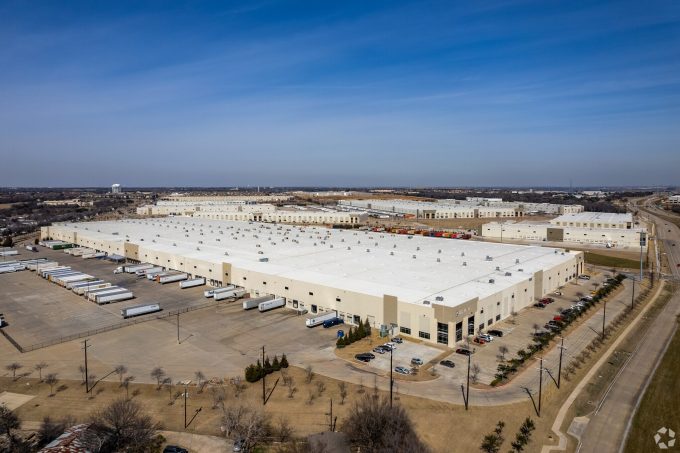Air cargo market enjoys some calm before an expected Q4 storm
It has been a quiet couple of weeks in airfreight, owing to China’s Golden Week. Overall ...
GM: RAISING THE ROOF GGM: IN FULL THROTTLE GZIM: MAERSK BOOST KNIN: READ-ACROSSMAERSK: NOT ENOUGHMAERSK: GUIDANCE UPGRADEZIM: ROLLERCOASTERCAT: HEAVY DUTYMAERSK: CATCHING UP PG: DESTOCKING PATTERNSPG: HEALTH CHECKWTC: THE FALLGXO: DEFENSIVE FWRD: RALLYING ON TAKEOVER TALKODFL: STEADY YIELDVW: NEW MODEL NEEDEDWTC: TAKING PROFIT
GM: RAISING THE ROOF GGM: IN FULL THROTTLE GZIM: MAERSK BOOST KNIN: READ-ACROSSMAERSK: NOT ENOUGHMAERSK: GUIDANCE UPGRADEZIM: ROLLERCOASTERCAT: HEAVY DUTYMAERSK: CATCHING UP PG: DESTOCKING PATTERNSPG: HEALTH CHECKWTC: THE FALLGXO: DEFENSIVE FWRD: RALLYING ON TAKEOVER TALKODFL: STEADY YIELDVW: NEW MODEL NEEDEDWTC: TAKING PROFIT

It was a quiet – well, publicly at least – weekend at Flexport, with founder Ryan Petersen staying off Twitter/X, after promising on Friday to find help find new jobs for those unlucky ex-new hires, some of which were due to start today.
Word also got out that a further six executives, hired by the hapless Dave Clark, were also let go, including president and CCO Teresa Carlson (who, according to Loadstar Premium sources, not only pushed out the well-respected Will Urban, but also “spent millions on personnel with little to no result”). Other Clark hires fired were in HR, operations, product and PR executives, according to WSJ.
The move to oust the Amazon specialists has triggered questions over Flexport’s deal with Shopify for its ecommerce fulfilment – and whether that will remain a key strategy for the forwarder. It is also, of course, looking to slash costs and refocus on freight forwarding.
But a source at Flexport told WSJ that the company intended to continue to pursue its Shopify Deliverr plans.
However – in one region anyway – its infrastructure costs for fulfilment could rise.
Flexport has been trying to get the building blocks for its Shopify strategy in place, specifically by taking on an 800,000 sq ft ecommerce fulfilment warehouse in the Dallas-Fort Worth metroplex, one of the largest warehouse spaces near the airport.
And – as the landlord has bemoaned in a US court – it got too good a deal.
The warehouse was leased by Bed Bath & Beyond (BBBY), the retailer undergoing Chapter 11 bankruptcy. BBBY paid some $250,000 a month for its ecommerce fulfilment space, as well as some $117,000 a month for other items, such as services, with annual total costs being about $4.5m.
BBBY had more than three years left on its lease – with an option to extend it for another 13 years. However, BBBY went into Chapter 11 owing the building’s landlord, DFW Lewisville Partners GP, some $69,540.
Under the bankruptcy proceedings, BBBY’s assets and leases were auctioned to other companies. Flexport won the right to take on the existing lease for the Dallas-Fort Worth warehouse – but without any requirement to pay off BBBY’s debt on the building, and, according to the landlord, in a process riddled with administrative errors.
But the landlord’s main concern is that Flexport is not sufficiently financially stable to take a lease on the same terms as BBBY. And DFW Lewisville Partners claimed in court that Flexport had not given it adequate assurance of its fitness to take on the lease.
“When the landlord was negotiating the lease with [BBBY] (including reviewing the tenant’s audited financials), the tenant was a 40-year-old investment grade, publicly traded company and a household retail name. For its fiscal year 2015, the tenant boasted $6.75 billion in assets, including $875 million in cash and equivalents, and the tenant had $2.7 billion in shareholder equity backing it. Likewise, for its fiscal year 2015, the tenant showed net sales of almost $12 billion, net earnings of almost $1 billion, and positive cash flow of more than $500 million.
“Clearly, the tenant projected as a strong, investment-grade tenant at the outset of 2016 when the lease was executed.
“This is starkly contrasted with Flexport, which is a 10-year-old start-up company.”
Sadly, for seasoned Flexport watchers, the paragraph on Flexport’s financials is redacted.
However CFO Kenny Wagers (who seems to have survived the executive cull), told the court: “Flexport as buyer submitted a qualified bid and prevailed at auction to purchase the lease for $500,000.
“The lease includes a requirement that any assignee of the lease have a tangible net worth of at least $500,000,000. Flexport’s tangible net worth is in excess of $500,000,000, as demonstrated by Flexports’ financial information, which the landlord has received.”
But the landlord noted: “Unlike the tenant in 2016, Flexport has no credit rating, much less an investment grade rating. Further, Flexport recently laid-off 20% of its workforce, which hardly bodes well for its ability to perform under the lease. Additionally, upon information and belief, Flexport’s presumed business purpose for the premises is in connection with Flexport’s new ecommerce fulfilment and last mile-logistics business (which was acquired from Shopify in June). The financials provided by Flexport obviously do not include income or expenses related to this new business line, so the utility of such financials is necessarily limited.
“Because of the tenant’s strong financial position, the landlord included provisions in the lease it would have never provided to Flexport”, it said, which included extensions to the lease period and no deposit. It added: “The landlord would absolutely require a substantial deposit or other security from Flexport if it entered the lease today.”
It concluded by calling on the court to deny Flexport’s assumption of BBBY’s lease terms.
The landlord will hardly be reassured by Flexport’s public disarray. The question now is whether the landlord will be able to impose harsher terms on Flexport – and whether the forwarder, which is desperate to slash costs, including on office buildings it has publicly offered up, will deem any new terms – on potentially non-core business – worth it.
Comment on this article